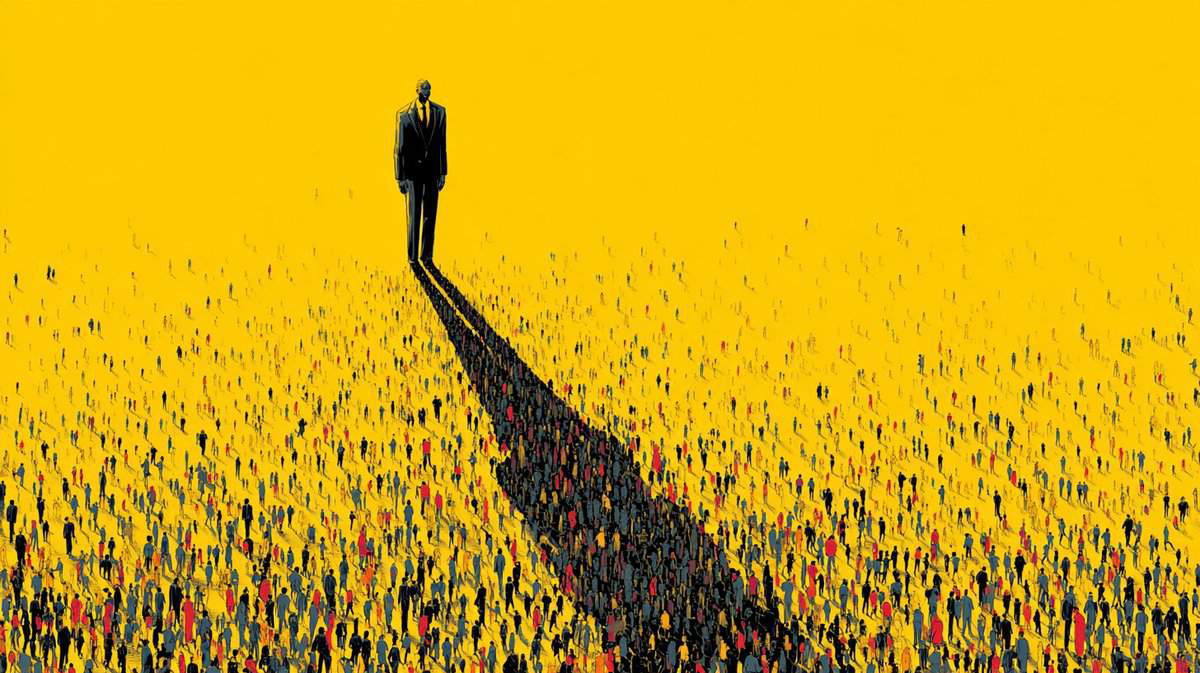Welcome to DU!
The truly grassroots left-of-center political community where regular people, not algorithms, drive the discussions and set the standards.
Join the community:
Create a free account
Support DU (and get rid of ads!):
Become a Star Member
Latest Breaking News
Editorials & Other Articles
General Discussion
The DU Lounge
All Forums
Issue Forums
Culture Forums
Alliance Forums
Region Forums
Support Forums
Help & Search
General Discussion
Related: Editorials & Other Articles, Issue Forums, Alliance Forums, Region ForumsDomination Without Order: How Libertarianism Betrays the Freedom of the Other

The libertarian promise of freedom masks a darker reality: absolute liberation for the few means domination for the many.
https://www.socialeurope.eu/domination-without-order-how-libertarianism-betrays-the-freedom-of-the-other

Political ideologies often rest on an apparently self-evident basic norm that appears immune to critical scrutiny. In classical liberalism—and in its more extreme offspring, libertarianism—the basic norm of freedom often remains little more than a political feeling. Reflections on what freedom actually ought to mean have long come from rival traditions of thought. All the more vehemently do libertarians flood the discourse with ungrounded, emotional slogans about said freedom.
Right-wing voices from the Murdoch press, the new tech oligarchs, as well as “crypto bros” on podcasts peddle a particularly vulgar form of libertarianism. What they celebrate is, paradoxically, a loyalty to domination and the powers that be. By casting freedom and order as irreconcilable opposites, freedom becomes not a collective aim but a privilege enjoyed only by the few. In their narrative, the state appears as the great opponent of freedom, as the power that prevents our autonomy—that is, our self-legislation. But are rules and restrictions really hostile to freedom? Does freedom necessarily stand in conflict with order?
A power to limit power
The question of the legitimation of the state and the manifestation of freedom could be called the fundamental question of political theory. Why should the state exist? Why should it act? Thomas Hobbes, in his famous Leviathan, brilliantly flipped this question around: what legitimates the state of nature? Life there, he argued, is solitary, poor, nasty, brutish, and short. To call such a life free or self-determined would be an absurd relativism that mistakes chaos for liberty.
To portray the state as freedom’s enemy may make sense in a dictatorship. In a democracy, however, this reduces itself to an ideology of voluntary submission to the powers that be. Power in the democratic state is seen as mere repression; what goes unacknowledged are the structures that, in the sense of the res publica, order freedom—labour protections, human rights, and the rule of law, for example. There is no absolute contradiction between freedom and order. The democratic state is not the adversary of liberty but its precondition: the institutional attempt to make freedom possible for all citizens, not merely those with economic or social power.
snip
2 replies
 = new reply since forum marked as read
Highlight:
NoneDon't highlight anything
5 newestHighlight 5 most recent replies
= new reply since forum marked as read
Highlight:
NoneDon't highlight anything
5 newestHighlight 5 most recent replies
Domination Without Order: How Libertarianism Betrays the Freedom of the Other (Original Post)
Celerity
Wednesday
OP
bucolic_frolic
(53,375 posts)1. EXTREMELY important perspective
It's like an unmasking when cast in those terms.
harumph
(3,029 posts)2. Breaking it down to fundamentals.
Interesting. Thank you for posting.
Makes me think of Wilhoit's law.